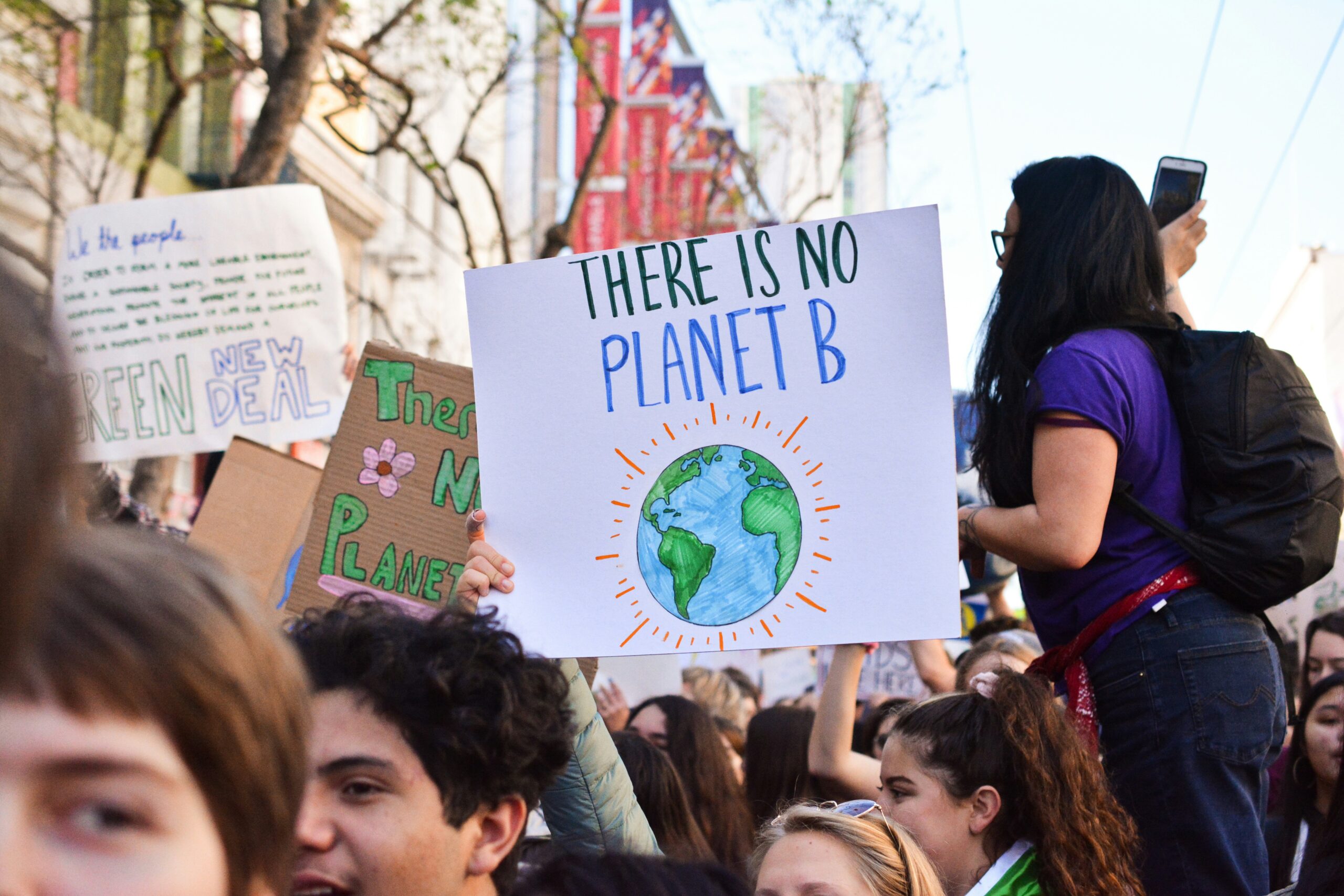One Simple Way Your Business Can Make A Big Climate Impact

To be alive is to have a carbon footprint (literally and figuratively). Even the most conscientious humans still add to global carbon dioxide emissions, which are the principal cause of climate change. And this will continue to be the case until we reach our 100% clean energy goal.
But there is one simple way you and your local San Diego business can make meaningful climate action right now—by offsetting your carbon emissions.
Carbon offsets help fund projects that work to reduce greenhouse gas emissions. They can also help finance new green technologies and services, getting them to market much faster. Here’s how your business can make a significant impact with carbon offsets.
What are carbon offsets and why do they matter?
In 2015, the Paris Climate Agreement set the global goal of Net Zero in 2050. And here in California, our goal is even more ambitious: Net Zero by 2030. This means that every metric tonne (2,205 lbs) of CO2 we emit must be matched by one tonne that we remove from the atmosphere.
Net Zero goals can be reached in two ways: by decarbonizing completely, and by doing carbon offsets.
Decarbonization happens by switching to clean energy sources from fossil fuels. For obvious reasons, it is the top shared climate action priority around the world.
Yet for equally obvious reasons, global decarbonization can be a painfully slow and fraught process. That is why carbon offsets are the next best thing. They allow us to take immediate, meaningful action to reduce greenhouse gas emissions.
Carbon offsets are certificates that represent the reduction of one metric tonne of CO2 emissions. Such reductions are produced by verified carbon reduction projects around the globe. Each tonne of emissions reduced in a carbon reduction project creates one carbon offset.
This is important because carbon reduction project developers can then continue to finance and grow their projects by selling these carbon offsets to companies and organizations who need them to help reach their own Net Zero goals. It’s a win-win for everyone.
Carbon offsets help those who will be hit the hardest by climate change
“I’ll admit that my initial reaction to carbon offsets was, probably like most people, a bit skeptical,” said Henkel Smith, Business For Good member and co-founder of Offset Alliance, a local San Diego firm that funds carbon reduction projects. “I was thinking to myself, ‘Is this a gimmick? How does this actually work?’ It turns out that carbon offsets are not only legitimate, but highly impactful.”
Before co-founding Offset Alliance with his wife, Henkel worked for an early-stage insurance company that was forced to restructure after the sheer volume of claims associated with the severe California wildfires of 2018.
The wildfires sparked Henkel’s own deeper interest in climate change. As he continued his own research and networking with experts in the climate action arena, Henkel found he had a passion for carbon offset work.
He also knew he had a moral obligation to help individuals and businesses in the U.S. understand the value—and urgency—of funding carbon reduction projects right now.
Aside from reducing greenhouse gas emissions, these projects also work to help protect our world’s populations that will be disproportionately affected by the most deleterious effects of climate change.
“It is widely accepted that the biggest threat of climate change is to the global south,” Henkel said. “Developing countries will get hammered way worse than us. Yes, it will be bad here in the U.S. But we have insurance systems and institutions in place that have proven to be resilient throughout history. Unfortunately, many communities in the global south don’t share these types of societal protections.”
Making carbon offsets simple for individuals and businesses
Offset Alliance’s mission is to make it convenient and simple for San Diego residents and businesses to help alter this grim future.
“Our goal is to raise awareness about the value of carbon offsets and increase the action that people can take to combat climate change,” Henkel said. “By funding Offset Alliance’s carbon reduction programs, it really is possible to make measurable, meaningful climate action right now.”
For individuals + solopreneurs
Whether it’s just you or you have a larger family, you can easily offset your CO2 emissions through a range of different offset options.
- Monthly subscriptions—Choose from three convenient, affordable recurring subscription plans that help offset your own emissions (based on household size, travel frequency, etc)
- One-time offsets—If you’re not ready for a recurring subscription, you can easily make a one-time offset for three, six, nine, or twelve months of your CO2 emissions
- Flight offsets—Are you a frequent flyer? You can accurately offset each of your flights just by selecting the length of the flight in hours
- Gift offsets—Your gift includes a digital carbon offset certificate with your recipient’s name and details about the positive impact it has on people and the planet
For businesses
You can’t always control all of your business’s CO2 emissions. But fortunately, all of those emissions can be measured and offset.
- The Offset Climate Certification—Offset Alliance uses its comprehensive MORE Framework (Measure, Offset, Reduce, Engage) to accurately measure your business’s emissions. From that, they’ll deliver credible emission reductions that have a far-reaching, positive social impact.
Any way you slice it, your participation in carbon offsets helps lower global CO2, sustain communities and cultures, and regenerate biodiversity by funding Offset Alliance’s verified carbon reduction projects.
What are verified carbon offsets and carbon reduction projects?
A cursory internet search will return millions of results for carbon offsets and their associated reduction projects. So, how can we be sure which carbon reduction projects are actually credible and aren’t “greenwashing”?
The best way to tell which carbon reduction projects are trustworthy is to make sure they are verified. This means projects that are thoroughly vetted by reputable third-party climate certification organizations and have been deemed to meet a rigorous set of standards and integrity.
“You can think of it in the same way you would a ‘certified organic’ food label,” Henkel said. “The USDA has a clearly defined and published set of standards that have to be met and independently verified by a third-party. Legitimate carbon offset projects are independently third-party verified to meet global standards published by organizations like The United Nations, Verra, Gold Standard, and Climate Action Reserve, to name a few.”
The projects Offset Alliance chooses to fund aren’t just third-party verified to meet the world’s best standards. Their impact on communities and biodiversity is also strategically aligned with the United Nations’ Sustainable Development Goals (SDGs). Here are just a few:
- Kariba Project (Zimbabwe)—Supports sustainable community development while protecting 785,000 hectares of forests to capture and store 6.6 billion pounds of CO2 every year.
- Afognak Project (Alaska)—Protects 8,200 acres of bio-diverse, coastal-temperate rainforest in Alaska to capture and store up to 2.6 billion pounds of CO2.
- Los Santos Project (Costa Rica)—Provides clean energy that keeps 33 million pounds of CO2 from entering the atmosphere each year, while creating and sustaining local jobs and educational programs.
- Viñales Project (Chile)—Keeps 570 million pounds of CO2 from entering the atmosphere each year by turning sawdust into energy.
Simple actions businesses can take to reduce their carbon footprint now
In addition to directly funding carbon offsets, Henkel noted there are several other simple and no-cost actions that businesses can take right now to make meaningful climate action.
- Measure your emissions so that you can understand them. “Just by going through that process, you’re going to identify the areas where your business emits the most CO2,” Henkel said. “That big picture helps you really understand your own contribution to global emissions. From there, you can start making immediate reductions that aren’t going to be disruptive to your business financially or operationally.”
- As your business grows and becomes more successful, stay vigilant. “When we’re in the very early stages of our businesses, we have to be incredibly resourceful to make the most out of what little we have,” Henkel explained. “I strongly encourage business owners to keep that ‘conservation mindset’ as they grow. Ask yourself what it is that you truly need, and how your business can have the best impact with anything you have leftover. This will keep you tuned into how much you’re consuming, and why.”
- Advocate for awareness of carbon offsets. “Make sure that your customers, suppliers, and partners all know where you stand on this and the climate actions you’re making,” Henkel said. “Just planting that initial seed and getting into their psyches really does prompt them to consider their own thoughts and actions surrounding CO2 emissions, as well.”
- Shift away from major appliance usage after sundown. Our energy grid has a much lower carbon intensity when renewables like solar are feeding it. “Once the sun goes down, a higher percentage of our energy demand has to be fulfilled using fossil fuels like natural gas,” Henkel said. “So, being aware of ‘powering down’ as much as possible after sundown can do wonders.”
Earth Day is the perfect time to commit to offsetting your business’s (and your own) carbon footprint. Join Offset Alliance in making high-impact climate action today!
